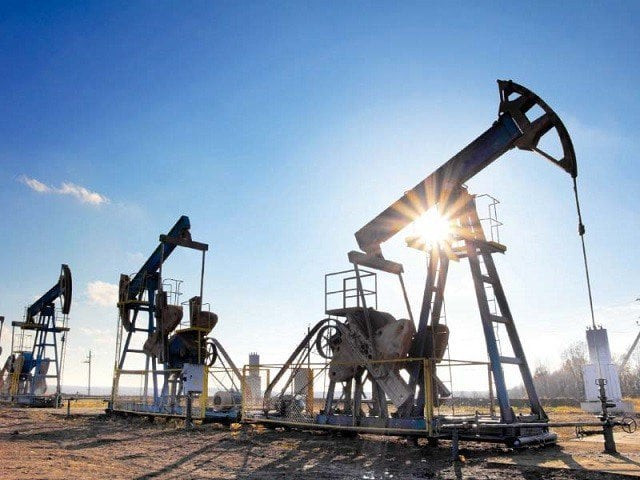PM Office directs OGRA to allow 4% gas losses to utilities
At present, the regulator permits SNGPL, SSGC to cover 6.3% losses

PHOTO: Reuters
At present, Ogra permits 6.3% gas losses to the two utilities - Sui Northern Gas Pipelines Limited (SNGPL) and Sui Southern Gas Company (SSGC).
Earlier, gas companies were allowed to cover 4.5% losses, however, Ogra raised the ceiling to 6.3%, out of which 5% covered the losses while the remaining 1.3% was on account of performance indicators. These remarks were made by Ogra Chairperson Uzma Adil in a meeting of the National Assembly Sub-Committee on Energy on Monday.
She informed the parliamentary body that the regulatory authority had allowed 120,000 extra gas connections to SNGPL in addition to the 300,000 connections permitted to the utility on a yearly basis.
On the other hand, SSGC is allowed to give 200,000 new gas connections per year.
It is interesting to note that SNGPL operates in Punjab and Khyber-Pakhtunkhwa (K-P) and Ogra allowed the additional gas connections, though Punjab had no gas production and it consumed expensive imported gas priced at Rs1,700 per million British thermal units (mmbtu).
She added that the authority had determined the loss ceiling for the utilities up to 7.5%, however, the PM Office issued directives for restricting the UFG level at 4%.
“No forum will give an additional allowance for gas losses to the public utilities,” she remarked, adding that an inquiry, launched by the National Accountability Bureau (NAB), had been grilling Ogra officials.
She pointed out that the average UFG level of gas utilities had reached 13%.
She also revealed that the gas companies were seeking permission for additional gas connections. “Will they (utilities) pump air if pipelines are laid,” she said. “Leave gas, we don’t have enough water to pump into pipelines.”
She was of the view that machines may prove effective in controlling gas theft because human beings could not control it. “Give powers (to gas companies) to control losses and they (MDs) should be sacked if they are unable to tackle the losses,” she added.
Gas companies have always been demanding an expansion in their gas pipeline network and parliamentarians have been backing it.
These companies have been allowed 17.4% guaranteed rate of return on the assets. Therefore, the expansion in network will provide an opportunity to make more money on account of return on assets.
However, the consumers, paying their bills regularly, suffer due to increase in gas prices. SNGPL officials told the meeting that although the regulatory authority had allowed additional gas connections, budget had not been allocated to give the new connections.
They were of the view that the company’s profit would be deducted to adjust the gas losses if they exceeded the 4% ceiling. They cited different reasons behind the performance of the company.
SNGPL officials added that the government was paying a subsidy of Rs155 per unit to the gas consumers. “The company will collapse financially if its financial health does not improve,” they cautioned.
Committee member Talib Nakai asked as to why gas connections were given in bulk during the tenure of previous Pakistan Muslim League-Nawaz (PML-N) government.
“Was there no gas shortage at the time when new connections were allowed?” he questioned.
Responding to that, the SNGPL managing director said it was the policy of the PML-N government to give new gas connections to consumers. “Also there is shortage of gas now.”
Published in The Express Tribune, March 10th, 2020.
Like Business on Facebook, follow @TribuneBiz on Twitter to stay informed and join in the conversation.


















COMMENTS
Comments are moderated and generally will be posted if they are on-topic and not abusive.
For more information, please see our Comments FAQ